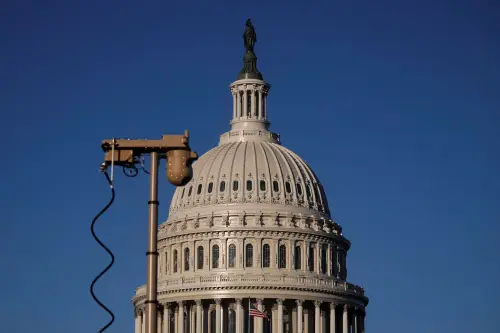Last week in immigration began Monday with an 84-15 vote in the Senate to bring S.744 to the floor for debate. The most surprising vote, either way, was Sen. Mark Kirk. Kirk, who voted no, was considered by many following the debate considered a potential Republican get.
But if you’re looking for concrete results from the first full week of debate, you might be a bit disappointed. As explained by Politico, “The Senate finished its first week of debate Thursday on a massive immigration reform bill—with almost nothing to show for it.”
Most of the issues that snared the senators were arguments about procedural issues like the number of votes needed to pass an amendment. If you need a refresher on the steps that lead to a final vote on S.744, check out Immigration Impact’s helpful post. AILA compiled a list of the amendments filed through Friday, though the process for submitting amendments on the floor has a more open timeframe than the Senate Judiciary Committee process.
By the end of debate on Thursday, only one amendment was voted on. While Sen. Chuck Grassley’s amendment, which would have required six months of “effective [border] control” before the undocumented could apply for registered provisional immigrant status, did not pass; it ignited a debate about Senate debate procedures.
Notable amendments filed include Sen. John Cornyn’s border security trigger amendment (the Gang of Eight is working on a compromise to the Cornyn amendment), an amendment from Sen. Marco Rubio that would tie English language requirements to legalization, and four amendments from Rubio and Sen. Orrin Hatch that would “require illegal immigrants to pay back taxes, curb immigrants’ ability to access health-care tax credits and subsidies and limit immigrants’ access to Social Security retirement benefits.”
It sounds like there are some off-the-record discussion between Sen. Rubio and the rest of his co-authors regarding his push for amendments that could compromise the bill. Rubio sounded much more optimistic about the bill Sunday, saying he thinks, “95, 96 percent of the bill is in perfect shape and ready to go.”
Over the next two weeks, our attention turns toward important senators who could have major impact on the debates and vote. Here’s some good discussion of who these players are from Roll Call and what they represent from NPR. Senators up for election in 2016 will undoubtedly make a calculated move on immigration, and there’s some good news from Sen. Mark Pryor, a crucial Democratic get who said his “inclination is to vote for the legislation.” Two “Gang of Eight” members, Sens. Lindsey Graham and Bob Menendez, are look even higher—saying failure to pass immigration this reform could be a major factor costing Republicans the White House in 2016.
President Obama was also a vocal proponent of the Senate’s efforts last week, speaking in support of passing S.744 Tuesday and meeting with Democratic senators on the topic Thursday.
In the House of Representatives, piecemeal immigration reform bills are moving forward. The House Judiciary Committee held a hearing on its controversial enforcement bill Thursday and is scheduled to begin the markup process Tuesday.
House Republicans’ strategy is somewhat altered with Rep. Raul Labrador leaving the House working group; they plan to meet July 10 to “discuss how they’ll handle the debate.” Speaker John Boehner remains “committed to [is] a fair and open process on the floor of the House,” and believes there can be a bill “by the end of the year”.
Despite the fissures in Congress, public polling seems supportive. From the White House’s online video, to an evangelical twitter take over, to a $1 million SEIU television commercial campaign, to former Republican governors—groups who want to see reform passed are making sure their voices are louder in 2013 than 2007.
The Brookings Institution is committed to quality, independence, and impact.
We are supported by a diverse array of funders. In line with our values and policies, each Brookings publication represents the sole views of its author(s).



Commentary
This Week in Immigration Reform: Procedural Disorder
June 18, 2013